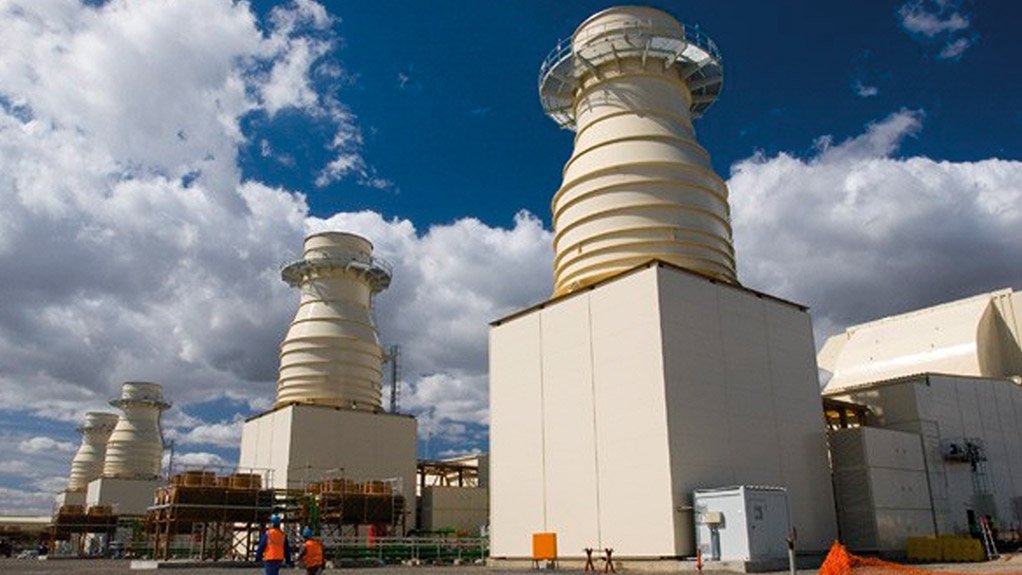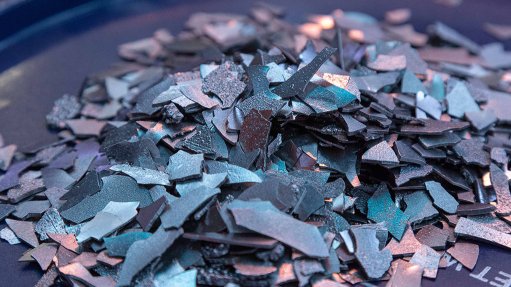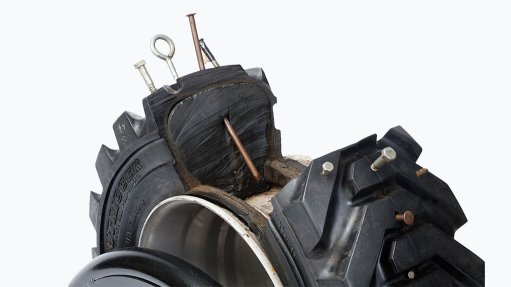With R9.2bn spent since April, govt insists Eskom is not exceeding diesel budget
Government reports that Eskom has spent R9.2-billion on diesel since the start of the State-owned utility’s financial year on April 1, which it claims to be marginally below an initial budget for the period of R9.7-billion.
The Presidency’s Rudi Dicks provided the figure during a regular weekly update on the implementation of the Energy Action Plan, during which Electricity Minister Dr Kgosientsho Ramokgopa reiterated that it had always been Eskom’s intention to use the open-cycle gas turbines to reduce winter loadshedding.
The move to clarify Eskom’s diesel spend came amid ongoing concern that the R30-billion reportedly set aside for diesel for the 2023/24 financial year was both exorbitant and insufficient in light of the ongoing underperformance of the coal fleet, and a four-month-plus outage slip at Koeberg Unit 1.
Dicks initially reported that R12.4-billion had been spent on diesel up until the end of July, but later clarified that the figure included electricity purchases from private open-cycle gas turbines and that Eskom’s own year-to-date diesel spend had been R9.2-billion.
Ramokgopa used the presentation to provide greater detail on the performance of individual coal stations, as well as to express his hope that Koeberg Unit 1 would be returned to service on November 3 and ahead of the Unit 2 outage, which is scheduled to begin on November 7.
The Minister provided a breakdown of three clusters of coal stations, with the first cluster (comprising Medupi, Lethabo, Camden, Duvha and Majuba) said to be operating at an energy availability factor (EAF) that was consistently better than 60%.
The EAF of the second cluster – comprising Matla, Arnot, Kendal and Kriel – was lower at between 40% and 59%, and had become a major area of focus for Eskom, as well as private specialists recruited with the support of the R100-million business-financed Resource Mobilisation Fund.
Particular attention was being given to interventions aimed at enabling power stations such as Kendal and Kriel to ramp up production without breaching air pollution thresholds.
There were also safety, cost and emission assessments under way as part of a controversial bid to finalise the delayed decommissioning of Camden in light of its relatively strong performance.
The Koeberg nuclear station has also been included in the second cluster, given its current EAF of only 48%, precipitated largely by a protracted Unit 1 outage, which began in December and was initially scheduled to be completed in June.
Eskom generation head Bheki Nxumalo said the primary goal was to ensure that Unit 1 was brought back into operation by November 3 or sooner, with any “consequence management” arising from the delays to follow only once the unit had been returned.
He reported that the major works relating to the replacement of the unit’s three steam generators (a requirement for a plan by Eskom to extend Koeberg’s life by a further 20 years from July next year) had been completed and that the current focus was on the “normal” maintenance works that Eskom had experience in conducting.
The third cluster included Hendrina, Grootvlei, Kusile and Tutuka, where the EAF remained well below 40%, with Tutuka having operated at an EAF of only 13% in July and with only one Kusile unit currently in operation, following the flue duct collapse of October last year.
Ramokgopa said the aim remained to recover 6 000 MW of capacity from the coal fleet relative to the lows of May and reported that about 2 000 MW of that capacity had already been recovered.
Article Enquiry
Email Article
Save Article
Feedback
To advertise email advertising@creamermedia.co.za or click here
Press Office
Announcements
What's On
Subscribe to improve your user experience...
Option 1 (equivalent of R125 a month):
Receive a weekly copy of Creamer Media's Engineering News & Mining Weekly magazine
(print copy for those in South Africa and e-magazine for those outside of South Africa)
Receive daily email newsletters
Access to full search results
Access archive of magazine back copies
Access to Projects in Progress
Access to ONE Research Report of your choice in PDF format
Option 2 (equivalent of R375 a month):
All benefits from Option 1
PLUS
Access to Creamer Media's Research Channel Africa for ALL Research Reports, in PDF format, on various industrial and mining sectors
including Electricity; Water; Energy Transition; Hydrogen; Roads, Rail and Ports; Coal; Gold; Platinum; Battery Metals; etc.
Already a subscriber?
Forgotten your password?
Receive weekly copy of Creamer Media's Engineering News & Mining Weekly magazine (print copy for those in South Africa and e-magazine for those outside of South Africa)
➕
Recieve daily email newsletters
➕
Access to full search results
➕
Access archive of magazine back copies
➕
Access to Projects in Progress
➕
Access to ONE Research Report of your choice in PDF format
RESEARCH CHANNEL AFRICA
R4500 (equivalent of R375 a month)
SUBSCRIBEAll benefits from Option 1
➕
Access to Creamer Media's Research Channel Africa for ALL Research Reports on various industrial and mining sectors, in PDF format, including on:
Electricity
➕
Water
➕
Energy Transition
➕
Hydrogen
➕
Roads, Rail and Ports
➕
Coal
➕
Gold
➕
Platinum
➕
Battery Metals
➕
etc.
Receive all benefits from Option 1 or Option 2 delivered to numerous people at your company
➕
Multiple User names and Passwords for simultaneous log-ins
➕
Intranet integration access to all in your organisation




















